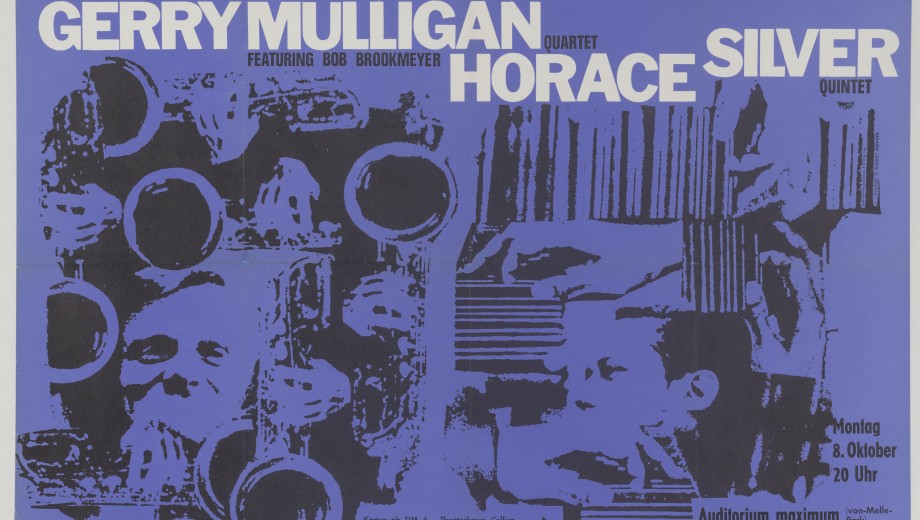“It’s really easy to treat an archive as fixed,” says Hannah Judd, AM’19, “and the maker of it as impartial in a way that is not true.”
Judd, a third-year graduate student in ethnomusicology, had the opportunity to think about the nature of archiving and “the very active role that people take in collecting and then distributing materials” as a Hanna Holborn Gray Graduate Student Fellow. Launched in 2019 with the support of University President Emeritus Gray, the fellowships aim to build graduate students’ skills and knowledge in new areas of scholarship, as well as give them opportunities to explore alternative scholarly careers.
Brenda Johnson, Library director and University librarian, has been grateful for Gray’s support, saying that in addition to the benefits the fellows have gotten, “The Library has gained the expertise and contemporary perspectives of some of the University of Chicago’s most talented graduate students.”
Gray Fellows work in multiple areas of the University of Chicago Library, from instruction to digital scholarship. As a University Archives Fellow, Judd went to work on a collection of more than 3,000 jazz posters, donated to the University by local collector R. Howard Courtney. Judd’s work involved cataloging and storing the posters and sorting them by size, performer or festival name, location, and date. She also read through and archived Courtney’s often copious notes about each poster: when and how he acquired it, how much he paid for it if he bought it, whether it was signed or not, and if so, the story behind the autograph. His notes sometimes included details about the performance itself: if it didn’t end up happening exactly as billed, or, occasionally, if it didn’t happen at all.
With a strong background in jazz studies, Judd found the work aligned with her research interests “in this really serendipitous, exciting way.” After her summer 2019 fellowship, she continued work with the collection as a part-time staffer.
It’s also made her think more about a career in a library or archive. Given her strong interest in public-facing scholarship, Judd likes the idea of “clarifying something for somebody else to be able to use. I really find that meaningful and fulfilling work.”
Out of the past
As one of the inaugural Gray Fellows, Carlos Cisneros was “ecstatic” to learn about the Metadata Fellowship for the Digital Media Archive (DMA) in winter 2019.
Cisneros, AM’18, is currently finishing his dissertation in Linguistics: a semantic analysis of an indefinite pronoun called the indiscriminative as used in English and the Mesoamerican language Mixtec.
For his fellowship he reviewed the metadata describing the content of the DMA’s extensive Mesoamerican language collection, ensuring that the descriptive categories assigned to each recording were consistent with the recording’s contents. He mainly relied on textual descriptions of the recordings to determine the appropriate classifications, but often took the opportunity to listen for himself.
“It was a chance for me to indulge in Mesoamerican studies,” he says of the fellowship, “as well as put my areal linguistics knowledge to good use.”
Although none of the recordings were Mixtec, studying them helped Cisneros understand Mesoamerica more broadly as a cultural and linguistic region. For example, recordings of prayers, chants, and music illustrated the extent to which indigenous religious and musical practices have stayed intact since the introduction of Christianity. Moreover, as a scholar who wants to help preserve knowledge of Mesoamerican languages, “whether it be through revitalization among communities or storing records in archives,” Cisneros said the fellowship was valuable as he accumulates his own recordings.
“It ultimately taught me about how archives operate, how to maximize my own organizational benefit from using information science tools,” he says, “and how I can contribute to more efficient utility of those tools for archives.”
A new perspective
Tynan Kelly, a fifth-year PhD candidate in Near Eastern Languages and Civilizations, knows plenty about students in the College. He was one (AB’09), has taught them—and currently lives with them as a resident head in Jannotta House in Renee Granville-Grossman Residential Commons. But his Library Instruction Support Services Fellowship provided him with a new perspective on both undergraduate research and teaching.
“You engage academic scholarship very early on in your college career,” Kelly says, “but kind of at a surface level.”
His fellowship, spanning summer and fall 2019, gave him insight into how he might change that for today’s students. After reviewing the Library’s research guides and leading workshops for high school and college students, he developed and taught a workshop of his own during Autumn Quarter on building and maintaining a bibliography. The workshop took a holistic approach, focusing not on “how to find sources and throw them in a list at the end of your project, but rather how to search for sources in a way that helps you build your project, formulate your thesis, and contribute to your field.”
When Kelly was a teaching assistant in Islamic Thought and Literature during his fourth year as a graduate student, he found that undergraduates’ papers relied mostly on sources they’d found by searching online. Informed by his fellowship work, if he were to teach the course again he would set aside some time in discussion section to talk about research. Even 30 minutes could make a huge difference, he says: “Here’s where to go for further reading. Your textbook is not going to be sufficient.”

